Resources
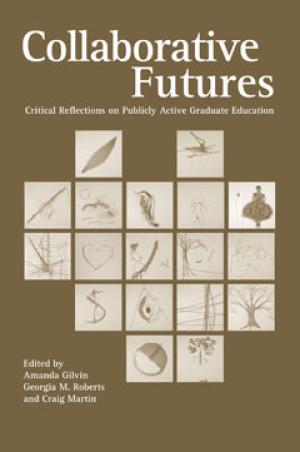
Collaborative Futures places graduate education at the center of ongoing efforts to legitimize publicly engaged scholarship within the academic profession. It is indispensable reading not only for graduate students seeking inspiration, resources, and usable frameworks for their engaged scholarship, but for the faculty who are called upon to mentor them and for university administrators seeking encouraging answers to questions about the future of graduate education. Given the erosion of the tenure system and the casualization of teaching labor, graduate programs and professional organizations in many fields now recognize the imperative to prepare doctoral students for careers wholly or partially outside academe. This book powerfully indicates both the need and the means to change institutional cultures and forge a publicly active path for graduate education. (From the Publisher)
Nine contributors to the Wabash Center's “Race Matters” blog (https://www.wabashcenter.wabash.edu/category/race-matters-in-the-classroom/) provide short teaching tactics they have used to help students engage difference in meaningful ways. 
A commitment to empathetic understanding shaped the field of religious studies; although subject to critique, it remains an important teaching practice where students are charged with the task of recognizing, and perhaps even appreciating, a worldview that appears significantly different from their own. However, when the focus of the course is historical trauma there are significant epistemological and ethical reasons empathetic understanding may not be our best pedagogical strategy. Drawing primarily on my experience teaching a general education class “The Holocaust and Its Impact” at California State University, Bakersfield, I advocate replacing empathetic understanding with engaged witnessing as a pedagogical framework and strategy for teaching traumatic knowledge. To make this case, I delineate four qualities of engaged witnessing and demonstrate their use in teaching about the Holocaust.
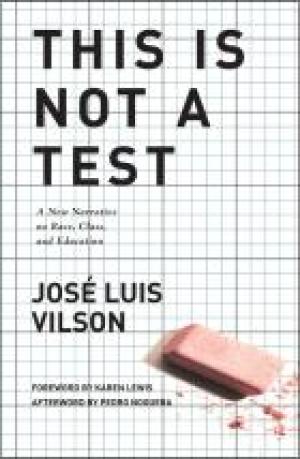
Click Here for Book Review Abstract: Graduating from Syracuse University with a degree in computer science, Jose Vilson left campus with no job and a few hundred dollars to his name, propelling him (eventually) to his calling: teaching middle school children math in a public school in Washington Heights / Inwood, Manhattan. From his own background as a boy growing up on the drug-tainted, community-centered projects of the Lower East Side of Manhattan, this book takes the reader on the coming-of-age story of a naïve young man struggling to mature through the first few years of his career, balancing the lows of murder, poverty, and academic failure to the highs of growth and eventual triumph. His career takes a twist when he starts a blog with incisive commentary on the state of education on his eponymous blog TheJoseVilson.com, taking prominent figures and institutions like NYC Mayor Michael Bloomberg, Secretary of Education Arne Duncan, and The New York Times to task. (As of this letter, the site is banned from most NYC Department of Education computers, yet read by central offices.) In his collection of multifaceted essays, he provokes discussion on issues of race, gentrification, and the teaching profession from the eyes of a Black-Latino educator with a mix of research and first-hand experience. This education book is not to be missed! (From the Publisher)
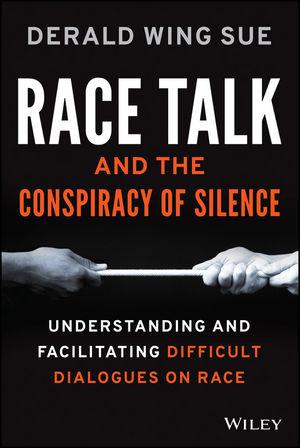
Click Here for Book Review Abstract: Learn to talk about race openly, honestly, and productively Most people avoid discussion of race-related topics because of the strong emotions and feelings of discomfort that inevitably accompany such conversations. Rather than endure the conflict of racial realities, many people choose instead to avoid the topic altogether, or remain silent when it is raised. Race Talk and the Conspiracy of Silence: Understanding and Facilitating Difficult Dialogues on Race puts an end to that dynamic by sharing strategies for smoothing conversations about race in a productive manner. A guide for facilitating and participating in difficult dialogues about race, author Derald Wing Sue – an internationally recognized expert on multiculturalism, diversity, and microaggressions – explores the characteristics, dynamics, and meaning behind discussions about race as well as the hidden "ground rules" that inhibit honest and productive dialogue. Through emotional and visceral examples, this book explains why conversations revolving around racial issues are so difficult, and provides guidelines, techniques, and advice for navigating and leading honest and forthright discussions. Readers will develop a stronger ability to build rapport with people unlike themselves, and discover how not talking about race impacts society as a whole. • Overcome and make visible the fears associated with race talk • Learn practical ideas for talking openly about race • Facilitate and navigate discussion with expert strategy • Examine the hidden rules that govern race talk • Understand the benefits of successful conversations Discussions about race do not have to result in disastrous consequences, and can in fact be highly beneficial to all parties involved. It's important that people have the ability to converse openly and honestly with their students, colleagues, children, and neighbors, and Race Talk provides the path for achieving this goal. (From the Publisher)

Click Here for Book Review Abstract: Returning seven years later to their original pieces from this landmark book, over 20 leading scholars and activists revisit and reframe their rich contributions to a burgeoning scholarship on Whiteness. With new reflective writings for each chapter, and valuable sections on relevant readings and resources, this volume refreshes and enhances the first text to pay critical and sustained attention to Whiteness in education, with implications far beyond national borders. Contributors include George Sefa Dei, Tracey Lindberg, Carl James, Cynthia Levine-Rasky, and the late Patrick Solomon. Courageously examining diverse perspectives, contexts, and institutional practices, contributors to this volume dismantle the underpinnings of inequitable power relations, privilege, and marginalization. The book’s relevance extends to those in a range of settings, with abundant and poignant lessons for enhancing and understanding transformative social justice work in education. Revisiting The Great White North? offers terrific grist for examining the persistence of Whiteness even as it shape-shifts. Chapters are comprehensive, theoretically rich, and anchored in personal experience. Authors’ reflections on the seven years since publication of the first edition of this book complexify how we understand Whiteness, while simultaneously driving home the need not only to grapple with it, but to work against it. (From Publisher)
This paper explores the possibilities and challenges inherent in employing community service-learning as a pedagogy for engaging undergraduates in theology and religious studies courses that contribute to racial reconciliation. The paper summarizes research from the scholarship of teaching and learning on best practices for structuring service-learning projects and processes that hold the possibility of students' genuine engagement with issues of race and the wisdom of the Catholic tradition.
Includes syllabi from a variety of college and university courses, across all disciplines, that have a strong flavor of “civic agency,” the capacity to work across differences to solve public problems, create lasting civic goods, and shape the world around us in democratic ways. The project emphasizes courses that speak to citizens as citizens, concerned about co-creating their communities of different scale.
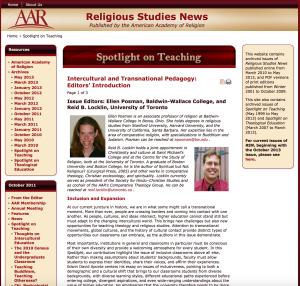
Journal Issue. Full text is available online.
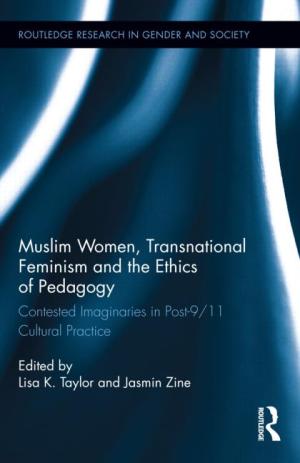
Click Here for Book Review Abstract: Following a long historical legacy, Muslim women’s lives continue to be represented and circulate widely as a vehicle of intercultural understanding within a context of the "war on terror." Following Edward Said’s thesis that these cultural forms reflect and participate in the power plays of empire, this volume examines the popular and widespread production and reception of Muslim women’s lives and narratives in literature, poetry, cinema, television and popular culture within the politics of a post-9/11 world. This edited collection provides a timely exploration into the pedagogical and ethical possibilities opened up by transnational, feminist, and anti-colonial readings that can work against sensationalized and stereotypical representations of Muslim women. It addresses the gap in contemporary theoretical discourse amongst educators teaching literary and cultural texts by and about Muslim Women, and brings scholars from the fields of education, literary and cultural studies, and Muslim women’s studies to examine the politics and ethics of transnational anti-colonial reading practices and pedagogy. The book features interviews with Muslim women artists and cultural producers who provide engaging reflections on the transformative role of the arts as a form of critical public pedagogy. (From the Publisher)